- Home
- Gerald Hammond
A Dead Question (Honey Laird Book 2) Page 7
A Dead Question (Honey Laird Book 2) Read online
Page 7
‘Good God no! I can’t stand the man. He’s a damn good doctor with a well run practice, but I left him and then his practice to get away from him. If you’re thinking of consulting him, you may be getting a good doctor but . . .’
‘But?’
Mrs Aston showed a trace of embarrassment unsuited to her strong features. ‘This is just between ourselves?’
‘I promise. If we need to make further use of anything you tell me now, we’ll get back to you for a fresh statement.’
Mrs Aston thought it over and seemed to find it acceptable. ‘How to put it into words? There’s no accounting for likes and dislikes, even for mistrust. Feelings can’t be spelled out. I conceived a dislike of the Doctor.’ Her white skin took on a dusky hue. ‘I went to him with a mild skin condition. His diagnosis was clearly accurate and his prescription cleared it up straight away. What was just as clear was that he could have arrived at the same diagnosis and treatment without making me undress. In point of fact, I think he’d made up his mind the moment I walked through the door. He had a nurse present, of course, but I knew, the way one does, that he was laughing at me. What was worse, he was getting . . . You know?’
‘He fancied you?’ Honey said, carefully unsmiling.
Mrs Aston’s jaw took on an angrier tilt and her plucked eyebrows seemed to bristle. ‘He was getting randy, I could tell. When a man gets both randy and amused, you can be sure that he’s fantasising all sorts of things that you’d rather not know about.’ She paused and there was a moment of silence. ‘I’m speaking for myself. Some women may enjoy being lusted after or even being the subject of erotic fantasies, but it does less than nothing for me. So now, what’s this about? Is it true that you’re a detective?’
There was no danger that Felicia Aston would hurry to warn the Doctor that he was being investigated. ‘I’m a detective inspector,’ Honey said. ‘I’m usually part of Mr Blackhouse’s team. We have some reason to believe that the Doctor has something on his conscience. We don’t know what. Because I live next door, I’ve been asked to while away the remainder of my pregnancy in finding out. There may be nothing or it may be trivial, but we have to look into these things; and because he has some important people among his patients and possibly among his friends, it has to be done very discreetly.’
Mrs Aston’s face relaxed. The expression of anger and contempt was replaced by one of mild satisfaction. ‘I see that. And I won’t say a word. I’ll help all I can, but I’ll tell you this; most of his patients are men. Women don’t stay long on his panel, but I’ve never heard of any behaviour that would cause the GMC to look at him sideways, nothing that you could put your finger on. Damn!’ she added. ‘I made up my mind that I wasn’t going to say that.’
Honey couldn’t help it. Her always rather ribald sense of humour took over. She smiled and a small snort of laughter escaped her. Felicia Aston’s formidable self-control slipped and she chuckled. Honey laughed aloud and in a moment the two were giggling together like schoolgirls. When the moment had passed, Honey wiped her eyes with a tissue and said, ‘Anything that you can tell me, anything at all, might be a help towards deciding, is there something worth investigating or isn’t there?’
The smile quite gone, Mrs Aston regarded Honey solemnly. ‘I’ll help if I can, as I said, but I warn you that I don’t know much about the man. My reaction to him is a gut reaction, nothing more. Perhaps it’s to do with telepathy. Socially, he gets accepted as a friendly, hearty man-about-town. More, I think, by men than women. As a doctor my husband can’t see anything wrong with him, but when his name comes up among women there’s a moment of silence and then one or two say that they think he’s marvellous and they talk about the services that he gives for nothing in Bosnia and places like that. But the others must have picked up the same vibrations that came to me. They either damn him with faint praise or make the sort of comments that don’t mean much on their own but add up to something nasty. One friend of mine, when we were alone together and she’d had a couple of gins, said that she was sure that, while he was being very helpful and professional, he secretly thought of her as a large, walking vulva with sagging tits. Have I shocked you?’
‘I am a detective inspector,’ Honey reminded her. ‘I’ve heard much worse, often.’
The other looked surprised. ‘I suppose that’s true. You must get used to seeing people at their worst, like dentists and social workers. And then there’s his nephew. Thank God I never needed surgery.’ Honey must have looked puzzled. ‘Didn’t you know? He has a nephew, Andrew Samson, a surgeon, who goes with him on his charitable trips. He works at one of the NHS hospitals but moonlights at a private clinic. If you go to Dr McGordon and need anything in the field of general surgery, that’s where you’ll be sent. Perfectly competent but, from what I hear, they’re each as bad as the other. Mister – one must call a surgeon Mister, mustn’t one? – Mr Samson’s said to be a very good surgeon. And I know that he’s a brilliant anaesthetist, because a friend of my husband’s had to have a growth removed from his face. They brought in a specialist and Mr Samson gave the anaesthetic. George – our friend – said that he never even knew that he’d been out; he was chatting with the nurses when he realised that they were wheeling him back to the ward. He asked why he wasn’t getting his operation and they told him that he’d just had it. It wasn’t until the painkillers began to wear off that he believed them.
‘On the other hand, Mr Samson’s just built himself a very expensive house to the east of Edinburgh and he shouldn’t be able to afford that sort of thing when he’s not long out of the egg, surely? I mean, there’s no money in that family except for his uncle’s earnings and he didn’t marry money. Quite the reverse. One of my oldest friends lives next door to them and she says that his wife spends money as though it can give you acne if you keep it around for too long.’
‘Go on,’ Honey said, smiling.
Mrs Aston had smiled again but now she frowned. For a moment, she could have been sitting at the foot of the guillotine. ‘I think I’ve said most of it. Professionally, Dr McGordon’s damn good, but I don’t know anything beyond what I’ve seen of him, going to his clinic, being examined –’ she gave a ladylike shudder ‘– and diagnosed and prescribed. What goes on behind the scenes I wouldn’t know, but I think I know who you should be talking to. A neighbour of mine, Marjory Allen, was his receptionist and bookkeeper for years. As you say, he may be pure as the driven snow, at least in the eyes of the law and the GMC. If there’s the least chance that he isn’t, I’d want to help bring it out. Shall I fix up a meeting for coffee somewhere?’
‘Why not here?’
Felicia Aston considered and then shook her head. ‘I think not. Your problem is that she still thinks that Dr McGordon is the best thing since the Pill. Does that matter?’
‘Not in the least,’ Honey said. ‘What friends say is often just as revealing as what enemies say, and usually closer to the truth.’
‘I suppose that’s so. But it means that if we ask her here, she’ll wonder why. A chance meeting in a neutral place might do it. I’ll phone you.’
‘That will be fine,’ Honey said, ‘but make it soon. I may not be out and about for much longer. Before you go, did you know the Doctor’s wife?’
‘Yes, I knew Dulcie. A love-hate relationship, I always thought. I wasn’t surprised when she ran off. If that’s what happened . . .’ She looked at Honey with her eyes wide.
‘We don’t have the faintest idea,’ Honey said. ‘But it would help if we had a photograph of Dulcie McGordon.’
‘I bet it would. And I think you may be in luck. I’ll go home now and look through my box of snapshots.’ She got to her feet and looked vaguely over Honey’s shoulder in the direction of a pastel sketch of an unidentified landscape in a gilt frame. ‘You know, it never occurred to me—’
‘Please,’ Honey said. ‘Let’s not make guesses. I’m told that Mrs McGordon went to her sister in Canada and I just want to prove that it’s true.
You’ll keep all this between ourselves?’
‘Of course. Absolutely.’
There was an uncomfortable pause. Honey was dying to say that ‘between ourselves’ meant that nobody, literally nobody whatsoever, was to be told; but she had a feeling that such an admonition might put Mrs Aston’s back up and that, in the process of complaining to some friend, and quite possibly that friend would be Marjory Allen, that she had been lectured like a child, the rest of the story would be spilled. Honey could only hope that Mrs Aston was a woman of her word, but it was a slender hope. There are not many of them around when it comes to confidences.
They parted on friendly terms.
Chapter Eight
June was a competent driver and quite used to the Range Rover. Rather than suffer more discomfort and invite further arguments about the danger of stress and exertion causing her baby to be born exhausted and with a bad case of road rage, Honey sent Felicia Aston home in the Range Rover with June as chauffeuse, thus obtaining for herself an interval in which to open her emails.
Prue Bishop had furnished the list of GPs under audit for possible fraud on the NHS, but Dr McGordon’s name and those of his partners were not among them. That, of course, did not mean that the Doctor was innocent any more than that the presence of his name would have meant that he was guilty of anything. No doubt there were many doctors who padded their list of patients or claimed time and mileage in respect of maladies dealt with over the phone; but their names would only come to the attention of the Audit Department due to some slip-up or a disaffected staff member.
Mr Potterton-Phipps emailed that the Doctor’s credit was excellent, that he had no discoverable debts, always paid up on time and seemed to be a first-class financial risk. That could be a good sign or a bad one, depending on whether one took it to mean solid respectability or access to easy money. He did not seem to have fallen foul of any of Mr Potterton-Phipps’s interests except that he had once given evidence in a case brought by a former employee of a subsidiary who complained that he had been left to lift a load that was too heavy for one man. Dr McGordon had given purely medical evidence calmly and dispassionately. The man had won his case for compensation for his damaged back and Mr Potterton-Phipps acknowledged that the verdict was a fair one.
She logged off and took Pippa for a walk to clear her mind, but the day was dank and misty. All that could be said for it was that the clegs that had been so troublesome in summer were absent now. She kept Pippa on the lead. It was not a day for optimistic contemplation. Honey had never tried to run through knee-deep treacle, but she supposed that it might well bear a strong resemblance to trying to solve the case of an unknown offence with no resources and no starting point. She had experienced much the same sensation during her childhood while trying to walk up a dune of fine, dry, shifting sand. One step up, one slide back. It was a relief when her mobile played her a tune. It was June, to say that lunch was ready.
She rested after lunch. Dozing, she heard the telephone ring but she dived back into repose. She awoke in half an hour, feeling miserable until she had washed her face and cleaned her teeth. On her return downstairs, June greeted her with a mug of tea and the news that Felicia Aston wanted her to call back. Her spirits dipped and then, always buoyant, rose. This could be more bad news but the balance of probabilities suggested that any news would be good.
Mrs Aston still sounded competent and in command. Her dislike of the Doctor was evident in her tone of voice whenever he was mentioned. She had met Marjory Allen in the corner shop, she said, and they had arranged to meet for coffee next day in a convenient Starbucks. And more good news. She had found a photograph that included a good likeness of Dulcie McGordon.
Even while they spoke, Honey was already turning over in her mind the steps required before a conventional photograph could be emailed. Where could she call on the sort of services usually provided by the police technicians? It struck her suddenly that a vital question remained unasked. ‘Who took the photograph?’
‘Roddy. My husband.’
‘An ordinary camera or a digital?’ Honey held her breath while awaiting reply.
‘Digital.’
Honey breathed more easily. Perhaps she was beginning to get a run of luck. ‘I’ll have to send it by email,’ she said, ‘so I need to get my hands on the digital image rather than a print.’
‘I’m looking at the digital image now. I remembered the picture and scrolled through the frames in Roddy’s camera until I found it. Anything that he really wants to keep he transfers to the computer and then onto a CD, but the rest he just leaves in the camera in case he ever finds a use for them. The camera can hold hundreds and hundreds of images.’
‘Would you write down the number, please. It’s probably in the top, right-hand corner of the digital image. To be safe, write down all the numbers that appear round the frame. Then take out the memory card or stick or whatever it is. I’ll send June to collect it.’ Her rather tentative resumption of driving had convinced Honey that the Range Rover, even after adjustment of the seat and the steering column, was not tailored to accommodate a lady at an advanced stage of pregnancy, nor was her own driving of it while in that condition as safe as she would have liked. June’s anxiety over injury to the foetus seemed to be catching. She was learning to worry for two.
For the first time, Mrs Aston’s calm assertiveness began to slip. ‘I wouldn’t know how to do a thing like that,’ she said. ‘I can just about turn it on and off and push the button.’
Honey closed her eyes for a moment. Perhaps her spirits had risen too soon. She had forgotten how inept some people could become when taken outside their own immediate experiences. ‘Can I borrow the whole camera for about half an hour?’ she asked.
‘I suppose that will be all right. But I must have it back before Roddy comes home.’
‘You will. Cop’s honour!’ Honey was feeling a return of her old, flippant self. If the Doctor’s fit of conscience had to do with the disposal of his wife, his sin might be about to return to haunt him.
Honey had to threaten to drive the Range Rover herself, which activity June had now convinced herself would result in the early demise of Honey and, worse, the baby, before June would agree to drive back over the ground that she had covered not long before; and that was with the proviso that Honey stood guard over June’s baking, which would be certain to combust if left to itself. Honey told her to drive carefully and be sure to stop at the red lights, which she knew would annoy June but was a fair tit-for-tat after all the grannyish warnings that June had heaped on her. She spent twenty minutes composing an email reply to her friend in Monaco. When she heard the Range Rover, she darted back to the kitchen, or as near to darting as a lady with a seriously enlarged figure could manage. The baking was perfectly all right.
Felicia Aston had provided a slip of paper with the crucial number upon it. When Honey settled down in the study and transferred the memory card to her own computer and called that frame up, she found a group of five ladies, of approximately similar age and colouring. Mrs Aston, contacted on the phone, was prepared to swear that Dulcie McGordon was the central figure, the only one with upswept hair and a blue dress. The picture was sharp and showed an attractive woman, on the plump side but still exhibiting sex appeal. Unlike the others in the group she wore no jewellery but Honey noted that her dress was expensively cut. Her hair was simply styled, shoulder length and in apparently natural waves. Her face was round and short-nosed but the consequent babyish look that is often attractive to men was wearing thin. The background scenery could have been a street of shops almost anywhere in the world.
Honey was struggling to pull the face up, clarify it and encapsulate it in an email to Canada, due to a lack of familarity with the editing program, when she heard the drumming of a powerful motorcycle outside and she was saved by the arrival of Constable Dodson. She hastened to the front door to admit him and hustle him through to the study where he was soon settled at the computer with Honey mana
ging to look over his shoulder despite her bump. The Constable, it transpired, was more computer literate than Honey and quite familiar with digital photography, so she kept him anchored to her computer until the email, carrying with it an excellent likeness of what she believed, in the light of old recollection and Mrs Aston’s assurances, to be the face of Mrs McGordon, was on its way to Vancouver with a request that, if a supposed Mrs McGordon should still be in Vancouver, a photograph in return might settle the question for good and all. The camera was on its way back to Mrs Aston in the hands of an ever more irritable June, followed by a silent prayer that Mrs Aston had identified the correct lady. Only then did Honey turn him out of the desk chair and into the visitor’s much less comfortable one. She turned her mind to whatever Dodson might have brought with him.
Dodson hesitated and looked uncertain. He produced several linked sheets of computer paper from an inner pocket. ‘I couldn’t make head nor tail of the Internet site – I think their computer must have crashed – so I went to the Registrar’s office,’ he said. ‘There was a clerk there who wouldn’t have given me the time of day. I watched until he went for his lunch and then went in again. There was a young lady left in charge and I sort of chatted her up. I had to show her how to make the computer cough up a list of death certificates signed by Dr McGordon and his partners.’
Honey wanted to ask him how he could have ‘sort of’ chatted up the secretary but decided that she might not appreciate the answer. ‘At least you seem to have used your initiative,’ she said. She hoped that initiative and charm had been all that he had used. She accepted the paper. It was a long list. ‘They have a lot of elderly patients,’ Dodson explained. He still showed signs of embarrassment. Surely, Honey thought, this could not be merely over having used his sex appeal on a secretary or office girl? Assuring herself that it would have been safe sex appeal, she transferred her attention to the papers. Somewhere among those names there might linger an explosive fragment, but not until she could look into the matter of legacies. The wills listed would be those of persons already deceased. How many wills, she wondered, had made favourable mention of the Doctor but were still lying in some dark cupboard or a solicitor’s safe because the testator had not yet been given that fatal push?

 Home to Roost
Home to Roost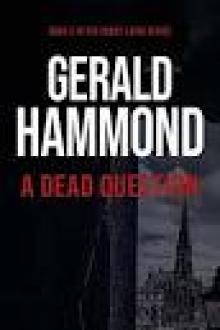 A Dead Question
A Dead Question Twice Bitten
Twice Bitten The Curse of the Cockers
The Curse of the Cockers In Loving Memory
In Loving Memory Illegal Tender (Three Oaks Book 12)
Illegal Tender (Three Oaks Book 12) Cold Relations (Honey Laird Book 1)
Cold Relations (Honey Laird Book 1) A Brace of Skeet
A Brace of Skeet Silver City Scandal
Silver City Scandal Sauce For the Pigeon
Sauce For the Pigeon Cold Relations
Cold Relations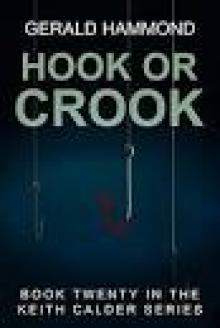 Hook or Crook
Hook or Crook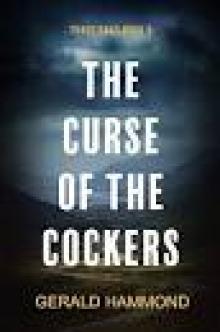 The Curse of the Cockers (Three Oaks Book 5)
The Curse of the Cockers (Three Oaks Book 5) Snatch Crop
Snatch Crop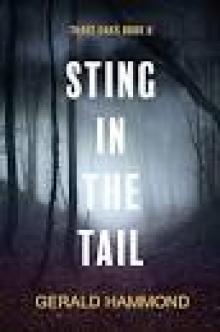 Sting in the Tail (Three Oaks Book 6)
Sting in the Tail (Three Oaks Book 6)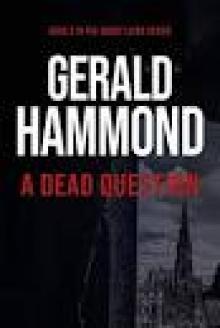 A Dead Question (Honey Laird Book 2)
A Dead Question (Honey Laird Book 2)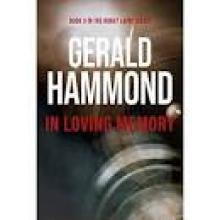 In Loving Memory (Honey Laird Book 3)
In Loving Memory (Honey Laird Book 3) Thin Air
Thin Air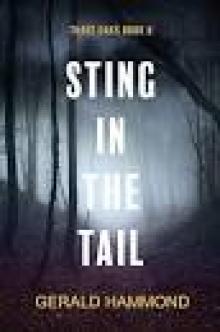 Sting in the Tail
Sting in the Tail Pursuit of Arms
Pursuit of Arms The Game
The Game Give a Dog a Name (Three Oaks Book 4)
Give a Dog a Name (Three Oaks Book 4) Fair Game
Fair Game The Executor (Keith Calder Book 10)
The Executor (Keith Calder Book 10) Whose Dog Are You? (Three Oaks Book 2)
Whose Dog Are You? (Three Oaks Book 2) Mad Dogs and Scotsmen (Three Oaks Book 7)
Mad Dogs and Scotsmen (Three Oaks Book 7) Cousin Once Removed
Cousin Once Removed The Worried Widow
The Worried Widow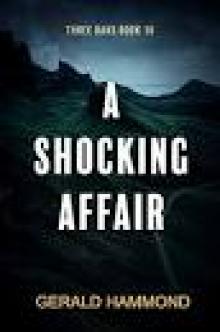 A Shocking Affair
A Shocking Affair Dead Weight (Three Oaks Book 11)
Dead Weight (Three Oaks Book 11) Whose Dog Are You
Whose Dog Are You The Revenge Game
The Revenge Game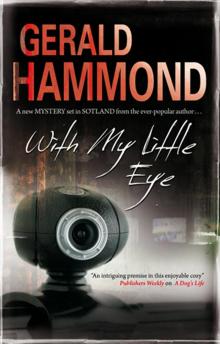 With My Little Eye
With My Little Eye Doghouse (Three Oaks Book 3)
Doghouse (Three Oaks Book 3)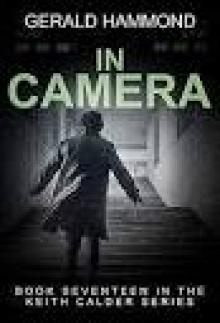 In Camera
In Camera Bloodlines (Three Oaks Book 8)
Bloodlines (Three Oaks Book 8)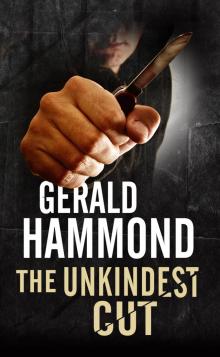 The Unkindest Cut
The Unkindest Cut